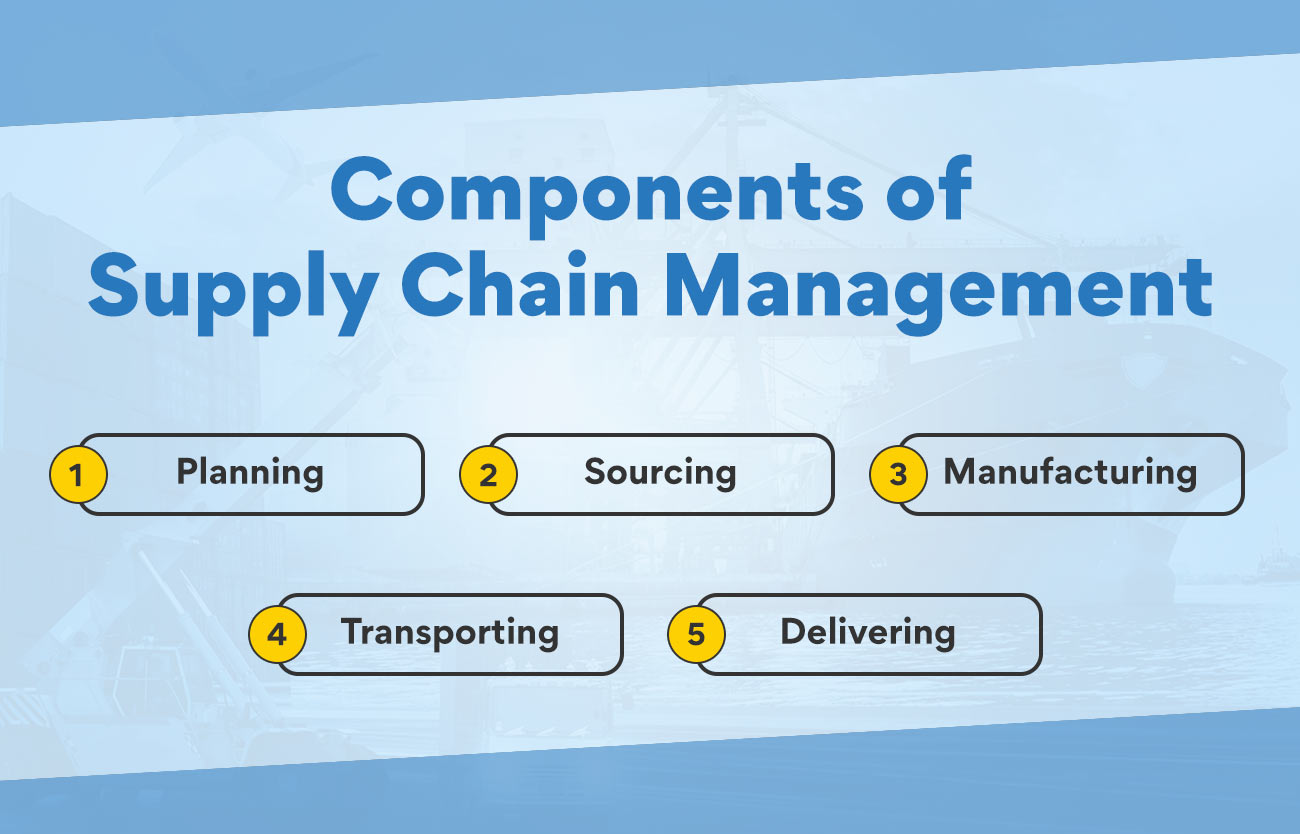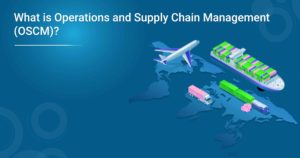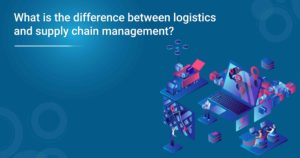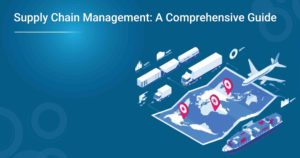In order to understand and optimise supply chain management, it is vital to know the essential components of this process. Components of supply chain management can vary depending on the type of business and products or services offered, but some essential functions are necessary for all companies. In this blog post, you will get to know the key components of supply chain management and how these elements can help you succeed!
What Is The Significance Of Supply Chain Management In Business?
Supply chain management (SCM) manages the movement of goods and materials throughout the supply chain, from obtaining to delivery. In other words, it’s all about ensuring that your company has the right products for the right audience.
SCM is a critical function for businesses that relies on the movement of goods and materials to keep operations running smoothly. A well-managed supply chain can mean the difference between a profitable business and one struggling to stay afloat.
The components of SCM ensure that your company has a coordinated and efficient system in place for procuring, manufacturing, and delivering products to customers. By understanding the key components of SCM, you can develop a supply chain management strategy to push your business ahead of the competition.
The first step in any successful SCM strategy is understanding your customers’ needs. What are they looking for in a product? When do they need it? You can develop a supply chain that meets those dynamic needs by understanding your customer’s needs.
The next step is to develop a network of suppliers that can provide the necessary materials and components for your products. When choosing suppliers, you’ll need to consider factors like cost, quality, and delivery time. Once you’ve selected a few potential suppliers, it’s essential to establish relationships with them and build rapport.
Once you have a network of suppliers in place, you’ll need to develop a system for manufacturing your products. This system should be designed to meet your customers’ needs while maximising efficiency and minimising cost.
You must develop a system for delivering your products to customers. It is ideal for getting your products to customers on time and in perfect condition. With components of supply chain management, you can reinforce the strategy of your business.
Components of supply chain management are essential to developing a successful strategy for business. By understanding customers’ needs, building relationships with suppliers, and establishing efficient manufacturing and delivery systems, you can create a supply chain that meets the needs of your business
Learn these components of supply chain management with an expert by your side. We have curated an Advanced Certificate in Operations, Supply Chain, and Project Management where you can learn everything related to supply chain management in detail.
Role Of Supply Chain Management
The role of supply chain management is to ensure that all components of the supply chain work together efficiently and effectively. Components of the supply chain include suppliers, manufacturers, distributors, retailers, and customers. Each element has its own unique set of requirements and needs that must be met in line with the supply chain to function correctly.
Supply chain management is responsible for coordinating and managing all the activities necessary for the supply chain to run smoothly. This includes everything from procurement to the delivery of finished products to the end customer.
An essential part of supply chain management is ensuring that the products and services supplied meet the customer’s needs. This requires a good understanding of customer demand and the ability to forecast future demand.
In order to be successful, supply chain management must constantly strive to improve the efficiency of the supply chain. This includes identifying and implementing process improvements, developing new technologies, and finding ways to better utilise existing resources. Supply chain management is an essential function in today’s business world, and those who are able to manage their supply chains effectively will be well-positioned for success.
Also Read: A Beginner’s Guide To Operations Management
Components of Supply Chain Management
As mentioned earlier, components of supply chain management are responsible for coordinating and controlling all the resources, information, and activities required to bring a product from its raw state to the final customer. Significant components of supply chain management are 1) Planning, 2) Sourcing, 3) Manufacturing, 4) Transporting, and 5) Delivering
So, what do these Components of Supply Chain Management entail? Let us take a closer look:
Planning
The planning process in supply chain management is responsible for mapping out the entire production process from start to finish. This includes deciding which raw materials will be used, what manufacturing processes will be employed, what transportation methods will be used to get the finished product to market, and so on. With efficient planning, businesses can avoid disruptions further down the supply chain.
What Is The Role of Planning in Supply Chain Management?
Planning is essential to supply chain management because it allows managers to anticipate problems and find solutions before they cause disruptions. By understanding the different components of the supply chain, managers can develop plans to optimise efficiency and minimise cost.
The primary aim of supply chain management is to create a system responsive to customer demand while maximising efficiency. To do this, managers must understand the different components of the supply chain and how they interact.
Without a good plan, controlling the entire supply chain would not be easy. So, planning plays a significant role in every small or big business.
Sourcing
Sourcing is all about acquiring goods or services from suppliers. In order to source effectively, organisations must first identify and assess potential suppliers. Once potential suppliers have been identified, organisations can then select the supplier that best meets their needs.
Selecting the suppliers is one of the essential decisions in supply chain management. Organisations must carefully consider several factors when selecting suppliers, such as quality, cost, delivery, and capacity.
Role of Sourcing in Supply Chain Management
Sourcing entails finding and acquiring goods and services to meet the needs of a company. In supply chain management, sourcing refers to the activities and techniques necessary to procure goods and services from suppliers.
The sourcing process begins with identifying potential suppliers, followed by selecting suppliers based on criteria such as quality, price, and delivery time. Once a supplier has been selected, the company will enter into a contract with the supplier. The contract will mention all the terms and conditions of the agreement, such as the price, delivery date, and quantity of goods or services to be supplied.
The sourcing process is a critical part of supply chain management, as it can significantly impact the cost, quality, and delivery of goods and services. Sourcing is also a complex process, as it involves coordinating activities across multiple functions within a company and with suppliers.
There are several different models of sourcing, which can be broadly classified into two categories: make-or-buy and outsourcing.
Make-or-buy sourcing is whether to produce a good or service in-house or purchase it from an external supplier. Make-or-buy decisions are typically based on several factors, such as the company’s core competencies, the availability of resources, and the cost of production.
Outsourcing is the decision to purchase goods or services from an external supplier. Outsourcing can be used to improve the efficiency of a company’s operations, as well as to reduce costs. When outsourcing, companies must carefully consider the supplier’s quality, delivery, and price. In addition, companies must also consider the impact of outsourcing on their own workforce.
Manufacturing
Manufacturing involves transforming raw materials into finished products. It’s one of the most critical aspects of supply chain management, as it can significantly impact costs, quality, and delivery times.
There are several different manufacturing processes, each with its advantages and disadvantages. The most common manufacturing processes are:
Assembly: This is the simplest manufacturing process and is often used for products made from a small number of parts. Assembly is typically a highly automated process and can be very fast and efficient.
Fabrication: This process is used for products made from raw materials that need to be cut, shaped, or otherwise processed before they can be assembled. Fabrication can be prolonged and expensive, but it’s often necessary for products requiring complex parts or a high degree of precision.
Machining: This process is used to create parts that are too complex to be made using assembly or fabrication. Machining is an exact process, but it can be very slow and expensive.
Transporting
Transportation is a crucial part of supply chain management, as it involves moving goods from one location to another. There are many different types of transportation, including air, land, and water. Each type of transportation has its advantages and disadvantages, so it is essential to choose the right type of transportation for each situation.
In order to make sure that goods are transported efficiently, supply chain managers must carefully plan and coordinate transportation schedules. They must also consider the different types of transportation available, as well as the different routes that goods can take.
Another important aspect of transportation is tracking. Supply chain managers must track goods as they move from one location to another. This allows them to see where goods are at all times and ensure they are being transported according to schedule.
Role of Transportation in Supply Chain Management
Transportation is responsible for moving goods from suppliers to customers. An effective transportation system is essential for businesses to maintain efficient operations and compete in the marketplace.
Various factors must be considered when designing a transportation system, including the type of goods transported, the geographical areas served, and the frequency of shipments. Transportation systems can be complex, with many different mode options available to move goods. The most common modes of transportation include trucks, rail, ships, and air.
Each mode has its own strengths and weaknesses, so it’s important to choose the right one for your needs. For example, trucking is typically the most economical option for short distances, while rail can be more cost-effective for longer hauls. Shipments by air are generally the most expensive but also the fastest option.
Delivering
Delivering components is related to the transportation of finished products from the manufacturing site to the customer. It also involves coordination and communication with different people, like clients, retailers, and suppliers. This component’s objective is to ensure that the products are delivered on time and without any damage.
Also Read: Green Supply Chain Management: What It Is and Why It Matters?
Role of Delivering in Supply Chain Management
It ensures that goods reach its customers on time and in good condition. This requires coordination between different parts of the supply chain, including suppliers, manufacturers, logistics providers, and customers. Delivering also involves managing risks, such as the risk of delays or damage to goods.
An effective supply chain management system should be able to track and monitor the progress of deliveries and provide alerts if there are any delays or problems. It should also have mechanisms in place to resolve issues quickly and efficiently.
Delivering is a critical part of supply chain management, and it is vital to get it right in order to ensure customer satisfaction. By understanding the role of delivering in supply chain management, businesses can ensure that their goods and materials are delivered on time and in good condition.
The Bottom Line
Supply chain management stands strong on the pillars of effective communication, planning, and execution. Components of supply chain management work in tandem to ensure that the process runs smoothly and efficiently.
Those who want to kickstart their career in supply chain management are in luck as they can learn these essential components in detail with our certificate course. Our Advanced Certificate in Operations, Supply Chain, and Project Management is specifically designed for aspiring supply chain managers, operational managers, and project managers. Take a look to know more.
More Information:
What is the difference between logistics and supply chain management?
What is Digital Supply Chain/Supply Chain 4.0?




























